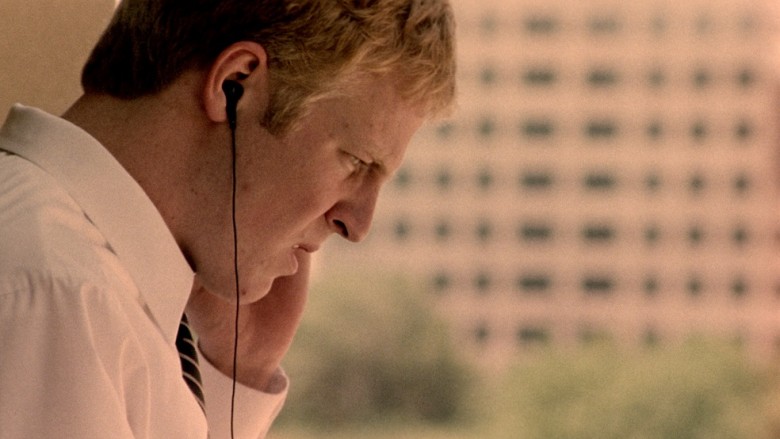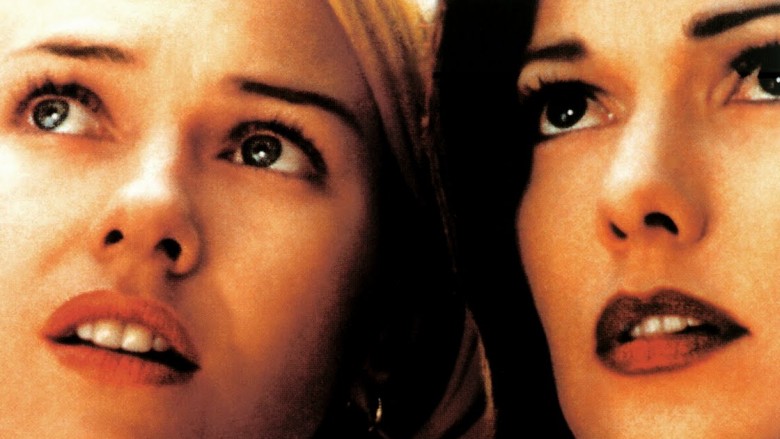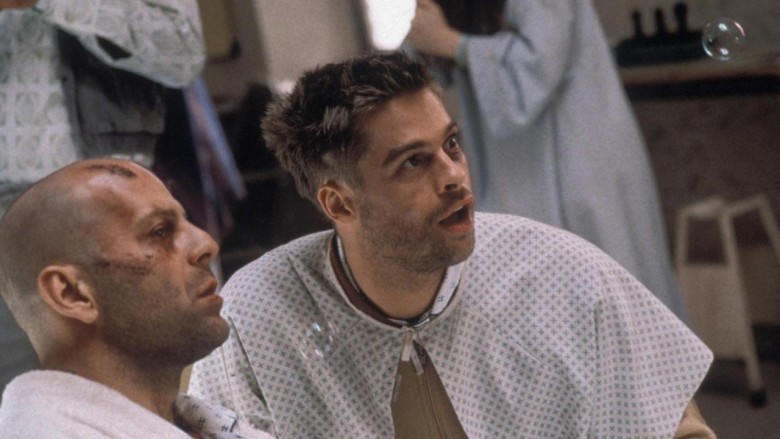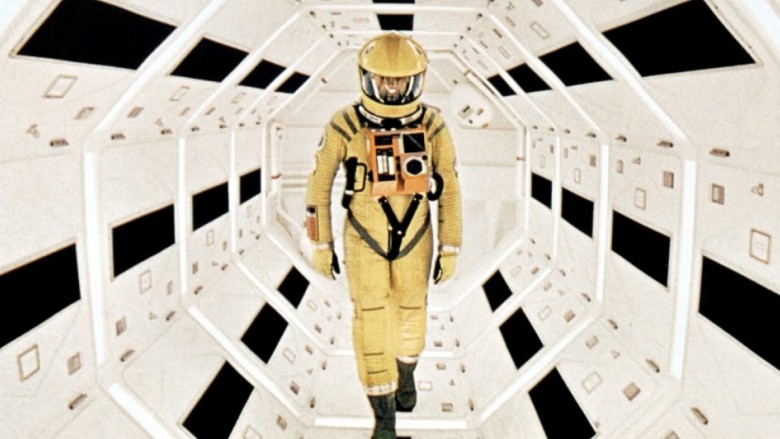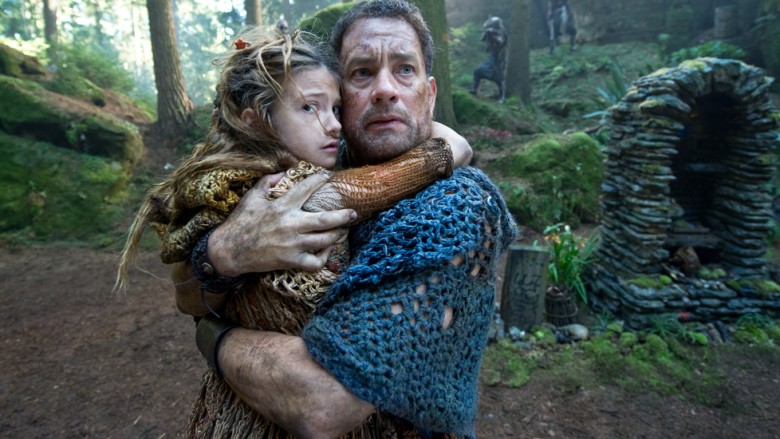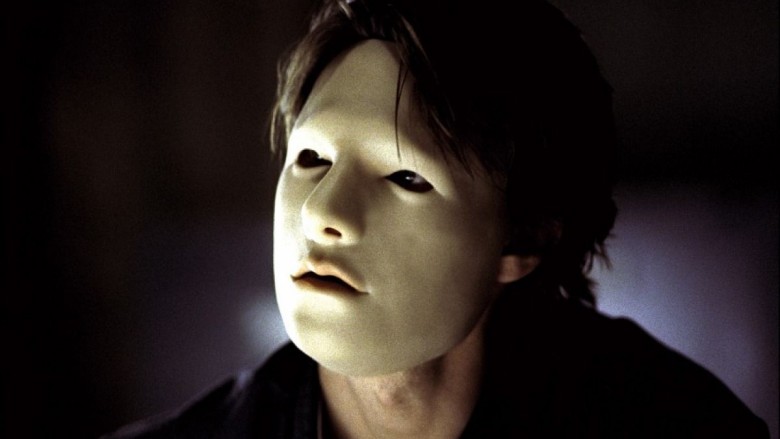Movie That Only Make Sense The Second Time Around
It's a truth universally acknowledged that most movies are single-serving affairs. Even the ones with complex narratives and twisty, mysterious plots don't require more than their two-hour runtime for you, the viewer, to totally understand what's going on. But every so often, a movie emerges that says "Nope!" to all that. These are the films that not only want you to come back for seconds, they require it, because they're just that confusing. From time-travel narratives to sci-fi extravaganzas to the crazy-making cinema of David Lynch, these are the movies that really don't make sense until you watch them again.
Memento
Christopher Nolan's 2000 breakout movie is told through the eyes of a man suffering from short-term memory loss, putting the audience in a pickle when it comes to making sense of the storyline. Leonard (played by Guy Pearce) is hunting for his wife's killer — but without the ability to retain information for more than 15 minutes at a time, the only facts he knows are the ones tattooed on his body, like permanent Post-It notes. Nolan is a filmmaker who loves to play with time, perspective, and unreliable narrators, and Memento contains all three. Like Leonard, we're dropped into the middle of a maelstrom of events with no context, and have to piece things together while the narrative runs backward and the facts turn out to be less than solid. It makes for a heck of a confusing experience on first viewing; however, the second time around, you'll be able to fully appreciate its tangled web of connections and twisty mysterious timeline.
Primer
This ultra low-budget sci-fi drama about a group of hobbyist inventors who accidentally build a time machine in their garage was made for a mere $7,000, which makes its complexity all the more impressive. The first time you watch Primer, it's a struggle just to keep track of the "rules" that govern its fictional technology, and you won't realize until extremely late in the game that the movie consists of multiple timelines which are virtually indistinguishable from each other (a hazard of time-travel narratives in which there are only a handful of characters and none of them ever change clothes.) In truth, this movie is so confusing that it may take multiple viewings to fully make sense of it, but you'll be off to a good start when you rewind it for round two.
Mullholland Drive
Director David Lynch is notorious for making movies that defy understanding, but Mulholland Drive is one that more or less coalesces with a critical second viewing. The thing that makes this film both brilliant and confusing is its fragmented narrative, in which events appear a) out of sequence, and b) intermixed with an extended fantasy flashback populated by all the same characters. The first time you watch Mulholland Drive, it's difficult to know what's real and what's not; the second, Lynch's visual hints about the timeline and Naomi Watts' stellar performance as central character Diane tie it all together, so it all makes sense... mostly. (No matter how many times you watch this one, the mystery of that monster hobo behind the diner dumpster never gets any less weird.)
Inception
Inception may be less tricky in the way it plays with time and space than Christopher Nolan's other films, but its central conceit of telling dream-within-a-dream stories—not to mention its incredible visual effects and enigmatic ending—makes it pretty confusing when you go into it cold. Whose dream is which? How do they stack? What just happened?! Are we even awake right now? Inception is a complex puzzle, but it's one whose pieces fit together quite neatly when you watch it a second time (and aren't so distracted by the extravagant spectacle of a city block folding in on itself like origami.)
12 Monkeys
After an epidemic kills off 99 percent of the world's population, one man is sent back in time to retrieve information about the apocalyptic virus—or is it the other way around? Like many movies on this list, 12 Monkeys plays with time, cause, and effect in a way that defies easy understanding, especially when you're watching it for the first time and just trying to take it all in. But on second viewing, the genius of making a time-travel movie in which time itself is a linear and fixed narrative—where you can drop into the story at any time, but never change how it ends—becomes fully, fantastically clear.
Donnie Darko
Wormholes, plane crashes, hallucinogenic man-sized rabbits, and a seriously doubtful commitment to Sparkle Motion; there's a lot about Donnie Darko that makes very little sense, at least the first time you watch it. James Gyllenhaal stars in this 2001 cult favorite as the titular Donnie, who is having either a) a nervous breakdown, or b) a totally understandable series of reactions to the impending apocalypse that only he can see coming. To really understand this sci-fi nightmare, which begins with a doomsday prophecy and ends by essentially eating its own narrative tail to bring the story full circle, you'll need to watch it twice.
2001: A Space Odyssey
Stanley Kubrick's 2001: A Space Odyssey is an extended, trippy rumination on the nature of human evolution, and while it's most famous for its space travel sequences (and for turning the phrase "I'm sorry, Dave, I'm afraid I can't do that" into one of the most quotable lines in movie history), the film actually consists of multiple, individual segments—which seem at first like they have literally nothing to do with each other. That's because 2001: A Space Odyssey doesn't have a linear or organized storyline, but it does have a sort of thematic soul. Watch it again with an eye to Kubrick's particular style of storytelling—one in which every visual element is imbued with multiple layers of meaning—and the whole thing coalesces into a singular work of art.
Cloud Atlas
With a huge cast of actors playing multiple roles across six distinct storylines in different time periods, Cloud Atlas is so sprawling and complex that you need to see it more than once to fully comprehend it. Tom Hanks and Halle Berry lead the ensemble cast, as the movie explores a series of interconnected events which shaped the world of the far future. Fortunately, it's so gorgeously shot (thanks to the Wachowskis and their penchant for fantastic, richly imagined visual worlds) that it never feels stale.
Vanilla Sky
Cameron Crowe's Vanilla Sky starts out as a typical tale of a New York publishing playboy (Tom Cruise) whose life spiraled out of control after a tragic accident disfigured his beautiful face. But about a third of the way through the movie, that easy narrative goes off the freakin' rails, and the remaining storyline is a cipher wrapped in a puzzle and heaped with a surprise faceful of what-the-actual-heck-just-happened. Although the film does eventually provide answers, including a last-minute flashback that's meant to cast its prior events in a less confusing light, the big reveal comes so late in the game that you'll probably still be scratching your head through the end credits. The solution? Watch it again! Go on, you've got time.
Arrival
Ooooh, that awkward moment when alien visitors wanna talk to you, but they don't speak a lick of English and there's no Rosetta Stone for Extraterrestrial Squid. What to do? Get a linguistics expert on the case, of course! Amy Adams led the cast of this 2016 sci-fi film, which turned a basic communication problem on its head by introducing a mind-blowing, non-linear narrative twist into the mix about halfway through. Without spoiling the movie's coolest aspect, let's just say that it is possible to grasp the basics of its inventive structure on your first viewing—but you'll want to watch it again to really appreciate the nuances and see how gorgeously it all fits together in retrospect.


